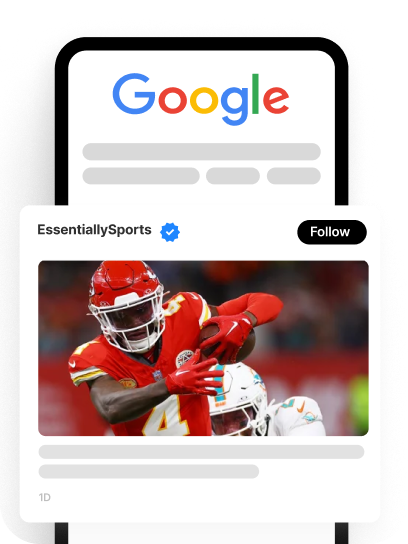

Come Tuesday, NASCAR teams were hit with a new kind of worry. While 23XI Racing and Front Row Motorsports remain head-to-head in a lawsuit with the stock car racing organization—with a trial set for December 1, 2025—most teams have largely stayed away. Many have theorized the distance might have been to avoid the potential financial risk of suing a powerful sanctioning body, a hesitance to perhaps lose a charter, the lack of financial pressure as opposed to the two suing teams, or simply just an unwillingness to dabble in legal issues. Yet, as fate would have it, all 15 race teams have found themselves entangled.
Watch What’s Trending Now!
On June 18, NASCAR petitioned U.S. District Judge Kenneth D. Bell of the Western District of North Carolina, to order racing teams (that aren’t a part of the original antitrust lawsuit) to provide financial information, reportedly dating back to 2014. Why? The organization argued it needed the information to “understand profit margins and whether teams are actually unable to make ends meet under the charter agreement”.
But 12 of the 15 teams (Joe Gibbs Racing, Hendrick Motorsports, Spire Motorsports IV, Trackhouse Racing, Penske Motorsports, Richard Childress Racing Enterprises, Wood Brothers Racing, RFK Racing, Legacy Motor Club, Hyak Motorsports, Rick Ware Racing, and Haas Factory Team) argue that the revelations would be “catastrophic”. Attorney Adam Ross noted, “It would be absolutely devastating to these race teams if their competitors were able to find out sponsorships on the cars, driver salaries and all revenue streams. It cannot make its way into the public realm…NASCAR has gone a step too far…This is the opposite of what they want — all the teams are torn to pieces that NASCAR wants them to disclose this information and they don’t want to upset NASCAR.”
Judge Bell’s take in all of this? One word: Exasperation. Being a long-time proponent of settling the bitter battle as soon as possible, the District Judge reiterated his point after the nearly two-hour hearing on Tuesday, but in a harsher way this time. “I am amazed at the effort going into burning this house down over everybody’s heads. But I’m the fire marshal and I will be here in December if need be.”
As for NASCAR’s ask, documents mention (as reported by FOX Sports’ Bob Pockrass):
- “Each team would separately provide its annual top-line financial data (total revenue, total costs, and net profits/losses) on an anonymized, average per-car basis for each year dating to 2014.
- The financial information would be limited to operations associated with fielding full-time cars in the Cup Series (i.e., not revenue or expenses tied to ancillary business lines like engine programs or non-Cup Series racing activities).
- The average per-car information from each team would be provided by the teams to an acceptable neutral accountant, who would produce to NASCAR’s trial counsel one spreadsheet displaying the per-car annual averages for each team but without identifying the team associated with each set of numbers.”
The best quote from Judge Bell about this NASCAR/23XI/Front Row case: “I’m amazed at the efforts going into burning this house down over everybody’s heads.
“I’m the fire marshal, and I’ll be here in December.”— John Newby (@JohnNewby_) June 24, 2025
Despite the courtroom drama, one thing is clear. Neither side is backing down. And with a December trial looming, the fire marshal might have more than one blaze to contain.
Tensions escalate over financial disclosures
To ease concerns, NASCAR proposed redacting sensitive details like team names and contract specifics. But that wasn’t enough for the attorneys representing the 12 non-party teams. They argued that even with redactions, it would be relatively simple to identify which numbers belonged to which teams, especially with high-profile organizations like Team Penske. One lawyer warned that it would take just a few hints to connect the dots.
As per a tweet by Matt Weaver, “The non-party teams do not trust NASCAR to keep financials confidential, while also pointing out that NASCAR is now able to own teams and want that information because they may compete on the track… The charter agreement signed by the non-party teams require disagreement to go to arbitration and not court so the teams are disappointed NASCAR had them in court. NASCAR says this is a federal antitrust case and that the judge does have jurisdiction over this. Ultimately, the non-party teams are open to disclosing what they offered during meet-and-confer but they want judge Bell to dismiss NASCAR’s request entirely.”
Even Judge Kenneth Bell didn’t appear fully convinced. At one point, he questioned, “Why is not enough to know it costs X to run a car?”
With the threat of deeper legal entanglement looming and mutual trust wearing thin, it’s clear the NASCAR lawsuit has become more than a battle over charters. It’s now a question of privacy, power, and just how far each side is willing to go to protect their version of the sport’s future.

